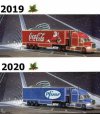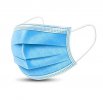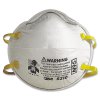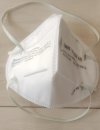From ergo-log.
Face mask has no adverse effect on sports performance
Fortunately, in many countries where the gyms are still open, despite all coronavirus hysteria woes, wearing a face mask is not mandatory. But if this changes in the near future, that shouldn't be a reason to stay at home. According to Canadian sports scientists at the University of Saskatchewan, wearing a face mask should not affecting your performance.
"This has practical significance, especially when exercising in settings where individuals might be vulnerable to contracting COVID-19, such as enclosed gyms, given that exercise should be encouraged for everyone during COVID-19 to reduce many of the risk factors (i.e., obesity, diabetes, and high blood pressure) that are associated with the worst COVID-19 outcomes."
The research says nothing about FFP2/N95 surgical masks. These products do reduce performance. [Clin Res Cardiol. 2020 Jul 6;1-9.]
Effects of surgical and FFP2/N95 face masks on cardiopulmonary exercise capacity
Conclusion
Ventilation, cardiopulmonary exercise capacity and comfort are reduced by surgical masks and highly impaired by FFP2/N95 face masks in healthy individuals. These data are important for recommendations on wearing face masks at work or during physical exercise.
Conclusion
Medical face masks have a marked negative impact on cardiopulmonary capacity that significantly impairs strenuous physical and occupational activities. In addition, medical masks significantly impair the quality of life of their wearer. These effects have to be considered versus the potential protective effects of face masks on viral transmissions. The quantitative data of this study may, therefore, inform medical recommendations and policy makers.





